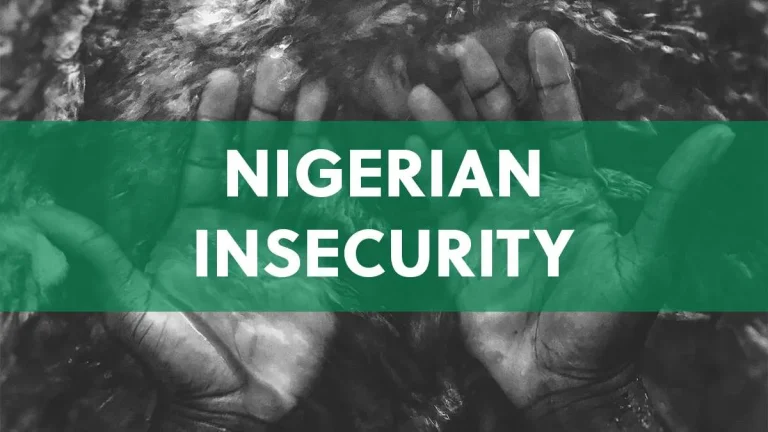While hundreds of innocent citizens are being killed weekly and entire communities, including school children, are abducted with alarming frequency, Nigeria’s dire security crisis is unfolding on the global stage in bizarre fashion. In the showbiz capital of the world, America is turning a national tragedy into a spectacle—an opportunity for President Trump to posture as a global saviour, “guns a-blazing,” in defence of Christendom.
Enter the famous U.S.-based Trinidadian-American singer, Nicki Minaj— or at least the latest surgically enhanced version of her. She has undergone so many cosmetic alterations that her own people in Trinidad might only recognise her by her name. Her physical transformation has been dramatic: from breast reduction procedures to early-career injections that redefined her appearance.
Perhaps her body has changed drastically, but her mind appears untouched—at least in theory. But even that is debatable. Anyone so dissatisfied with their natural form and willing to alter it so extensively may not be the most stable voice on matters requiring depth, context, or emotional balance.
Minaj is known to change her mind as easily as the wind shifts in stormy weather. Reflecting on her many surgeries, she once admitted she was “fine just the way I was.”
Yet this is the person invited to the United Nations to speak on a grave and complex issue such as Nigeria’s security crisis. Had she been a victim, a witness, or even an expert on the matter, her presence might have been justified. Instead, as she admitted during her brief address, she spoke solely based on accounts from unnamed “victims and associates” in Nigeria—none of whom she attempted to identify.
She arrived at the UN, delivered a performance laced with emotional theatrics, and shed a few symbolic tears to dramatise a narrative too shallow to pass as a bedtime fable. It is a troubling reflection of how far the UN’s standards have declined in recent years.
But this decay is not limited to the UN alone. Nigerian Bishop Wilfred Chikpa Anagbe also appeared before the U.S. House Foreign Affairs Subcommittee on Africa on February 14, 2024, delivering an emotional presentation on alleged genocide in Nigeria—again without verifiable data, victim identities, specific locations, or dates.
As a man of God, the Bishop’s claims might be taken at face value. Nicki Minaj, however, is a different case entirely. Her public record is burdened with controversies significant enough for any reasonable observer to question her credibility—especially on an issue as complex and politically sensitive as Nigeria’s security landscape.
Her notoriety extends far beyond music. In 1994, her husband, Kenneth Petty—then 16—was accused of raping Jennifer Hough at knifepoint in Queens, New York. He later pleaded guilty to attempted first-degree rape and spent over four years in prison. His conviction requires that he register as a sex offender wherever he resides. After relocating to California with Minaj in 2019, he failed to register and was subsequently arrested in March 2020.
In August 2021, Hough filed a civil suit accusing Minaj and Petty of harassment, intimidation, and attempted bribery—allegedly offering $500,000 and later $20,000 to coerce her into recanting her allegations. When she refused, she reported an onslaught of threats and unwanted visits, leading to multiple relocations and severe emotional distress.
Minaj herself has also faced scandal. In 2024, her employee, Getty Garrett, sued her for physical assault after an incident backstage in Detroit. Garrett described a volatile episode in which the singer berated him, threatened him, and physically struck him, prompting her bodyguards to close in as she continued her tirade.
Yet, despite these controversies, the American establishment elevated Nicki Minaj to the role of a moral ambassador—qualified, in their eyes, to address the United Nations on violence in a country she has never visited and would likely dismiss if invited. The charade is not only an insult to victims of violence in Nigeria; it is a profound disrespect to the nation itself.
But then, perhaps it aligns with the narrative already cast by Donald Trump, who has branded Nigeria a “disgraced” nation. Coming from a man widely regarded as one of the most unstable leaders in modern history, the insult might have been easy to dismiss—if not for the unsettling reality that some Nigerians now believe he is right.


